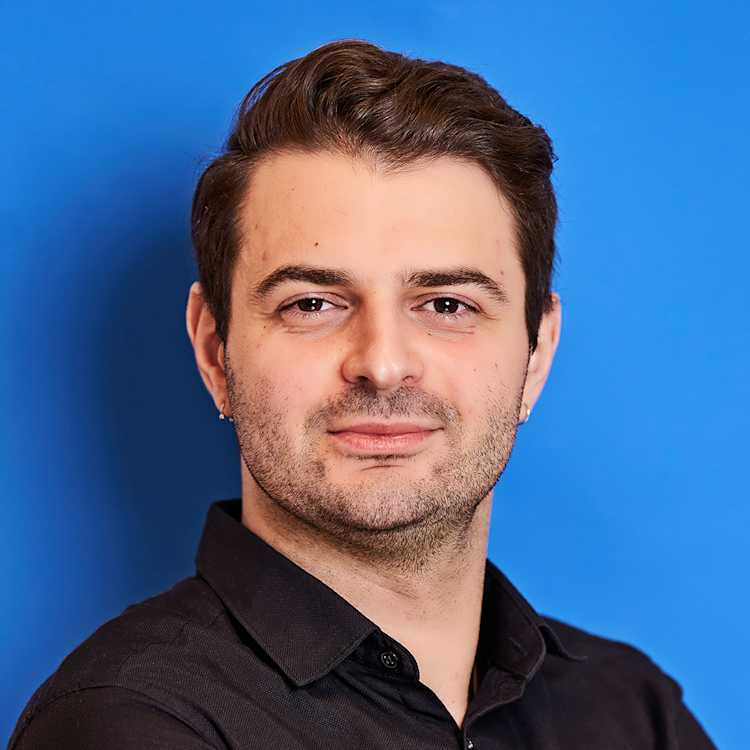- Startseite
- Presse
- "Spotlight on…" Ardahan und Aniket
Spotlight on... | 19.05.2021
"Spotlight on…" Ardahan und Aniket
Wir begrüßen zwei neue Doktoranden, die im April im DP begonnen haben. Erfahren Sie mehr über Ardahan und Aniket und ihre Forschungsprojekte in den Interviews.
Ardahan Gedikli
Ardahan joined the Doctoral Programme in April 2021. He holds a master’s degree in Conflict, Security and Development, which he obtained at the University of Sussex in 2016. Before he started his PhD, Ardahan was working as a Teaching and Research Assistant at Koc University. Ardahan’s dissertation has the working title “The Political Economy of AKP's Foreign Aid: A Regional Assessment of Middle East and North Africa”. Get to know Ardahan and his dissertation project in the short interview below:
What is your main motivation to address the topic of your PhD?
Firstly, the existing studies on foreign aid had mostly concentrated on advanced capitalist countries until the new millennium. The emerging donors (or BRICS countries) are now being studied also in terms of their delivery of foreign aid. Being seen as an emerging donor, Turkey’s delivery of foreign aid has not been studied much until recently. And secondly, the existing accounts on Turkey mostly relied upon statist and liberal paradigms, which motivated me to embrace a more critical perspective on this specific topic.
How would you explain your research topic to your grandmother?
Some states are delivering a considerable amount of foreign aid and assistance to the so-called underdeveloped countries. This aid can be in form of food and medical aid, infrastructure projects and technical assistance. Most of these are promoted as humanitarian or philanthropic activities by the donor states. But this is just the tip of the iceberg which conceals primary political and economic motivations behind the delivery of aid, grandma.
What are you looking most forward to during your PhD studies?
I was (and still am) looking forward for possible field visits and to conduct interviews in possible case countries such as Tunisia and Egypt. I hope that the current pandemic situation does not last long, and I still have the opportunity to visit these countries in the coming years.
And now to wrap this interview up: Theory or practice?
Theory mostly guides practice. So, I think that it is academically more inclusive.
Big conferences or small workshops?
Small workshops give you the opportunity to explain your research at great length and engage in long discussions, which I find more productive. You mostly do not have this opportunity at big conferences.
Aniket Bhavthankar
Aniket completed his master studies in International Relations at the South Asian University in New Delhi in 2013. Before he joined the Doctoral Programme in April 2021, Aniket worked as an Assistant Professor at Symbiosis International (Deemed University) in Pune. His dissertation project has the working title “India’s Nuclear Negotiations (1998-2008): Understanding the Constancy of the Mahabharata’s Dharma”. Learn more about Aniket and his dissertation project, in the interview below: What made you choose to do a PhD?
My academic journey has seen many twists and turns, after graduation in Computer Applications in 2004, I took a longer gap and enrolled for masters in International Relations in 2011. Afterwards I worked with a think-tank for a few years and during that phase I interacted with academic experts in related areas. In 2016, I joined the University as an Assistant Professor and for the next four and half years thoroughly enjoyed teaching theories and concepts. I also loved the process of mentoring young minds for their dissertation. The process also ignited my mind to further my own academic journey, I decided to quit the job and joined the Doctoral Programme at the GIGA.
What is your main motivation to address the topic of your PhD?
Today, India is keen to play a major role at global high tables. Thus, it is imperative for the world to understand India’s negotiating behavior. Besides, while teaching International Relations theories, I was always curious to know whether India, one of the oldest civilizations, has its sui genries way of thinking about statecraft. Thus, I would like to explore India’s negotiating style regarding the nuclear domain. I have opted for a time period from 1998 to 2008. I chose the specific time period because after the second nuclear tests in 1998, it took a decade for India to get a waiver from the Nuclear Suppliers Group (NSG). The NSG waiver was an entry point for India to integrate with the global nuclear order.
If you could choose one person to discuss your research topic with, who would that be (e.g. a well-known researcher, politician, other public figure)?
Obviously, my supervisor, Prof. Amrita Narlikar. She wrote a book titled ‘Bargaining with Rising India: Lessons from the Mahabharata’. The book played a huge role in shaping my topic for the doctoral studies. Moreover, Prof. Narlikar’s understanding about India’s cultural traditions and related negotiations is profound and will certainly guide me during my doctoral studies.
And now to wrap this interview up: Theory or practice?
Both are complementary to each other, but practice certainly help in building and, if required, in strengthening theoretical perspective.
Big conferences or small workshops?
Small workshop, it helps in exchanging views in a more constructive way and also helps in building one’s network.

